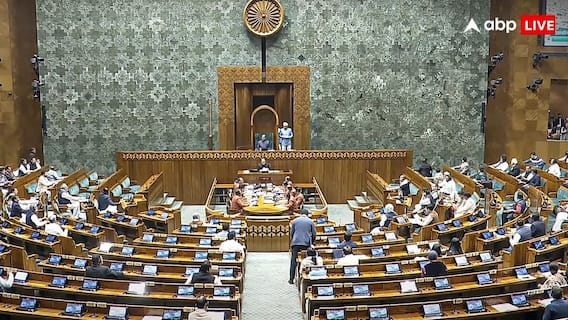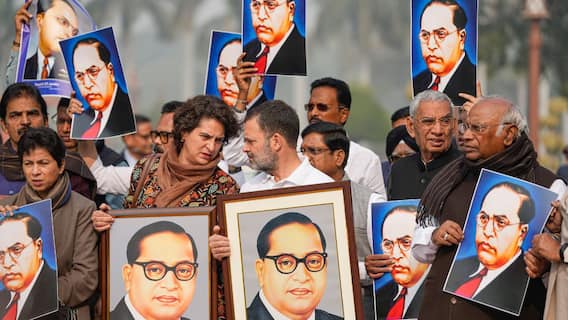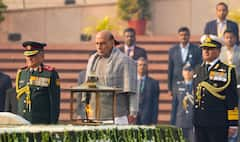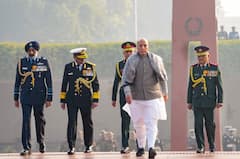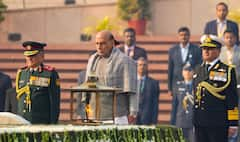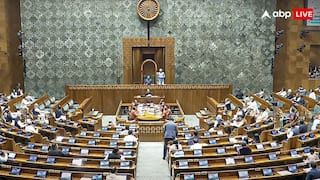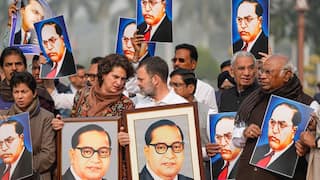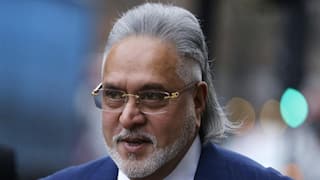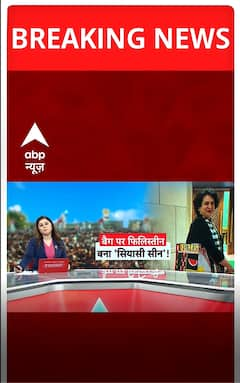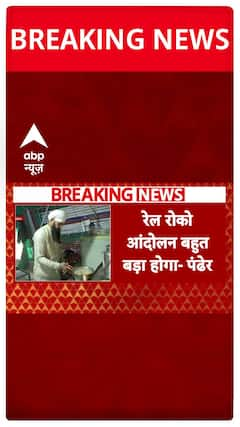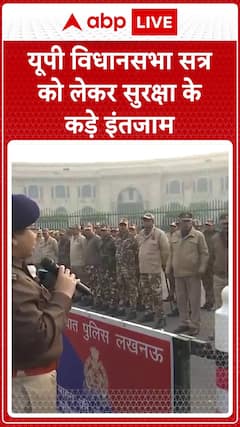Delhi-Centre Row: Supreme Court Refers To 5-Judge Bench Dispute Over Control Of Services
The bench had reserved its order on April 28 on the Centre's submission that the dispute over the control over services be referred to a five-judge bench.

New Delhi: The Supreme Court on Friday referred to a five-judge Constitution bench the dispute between the Centre and the Delhi government over control of services in the national capital for an “authoritative pronouncement” on the issue. A bench comprising Chief Justice N V Ramana and Justices Surya Kant and Hima Kohli, however, said all other issues, except the issue of control over services, had been “elaborately dealt with'' by the previous Constitution bench in 2018 and they will not be revisited.
“Subject to the provisions of the Constitution and Article 239AA (which deals with Delhi’s power) of the Constitution and considering the Constitution bench judgement (of 2018), it appears that all the issues except the one pending consideration before this bench have been elaborately dealt with therefore, we do not deem it necessary to revisit the issues that already stand settled,” the CJI said while reading out the operative portion of the verdict.
ALSO READ | Bail Hearing In Umar Khalid Case Fixed For May 19 By Delhi High Court
The limited issue that has been referred to this bench relates to the scope of legislative and executive powers of the Centre and the Delhi government with respect to the terms of services, the verdict said.
“The Constitution bench of this court while interpreting Article 239AA of the Constitution did not find any occasion to specifically interpret the dispute herein ...we therefore deem it appropriate to refer the above limited question for an authoritative pronouncement by the Constitution bench,” it said.
“We are listing it on Wednesday. Please, do not ask for any adjournment (on May 11),” the CJI said.
The bench had reserved its order on April 28 on the Centre's submission that the dispute over the control over services be referred to a five-judge bench, a plea which was strongly opposed by the AAP-led Delhi government.
While reserving the order, the bench had said in the case, that it decides to constitute a five-judge bench to hear the issue then the hearing has to be concluded before May 15 so that the vacation time can be used for preparing the judgement.
Singhvi had said “This court is not here to refer every time the slightest thing is pointed out. How does this matter, if there were three or five judges. It is not about why not, it is about why.” The solicitor general had said the matter needed to be sent to a Constitution bench on grounds including that the earlier judgements of the five-judge bench did not give “any roadmap” to decide as to whether the union or the Delhi government will have the competence to deal with the subject under dispute.
There has been a finding of the bench that there was no consideration on certain aspects by the larger Constitution bench and hence the dispute needed to be referred, Mehta said.
The law officer referred to the observations made by Justice Ashok Bhushan (since retired) in the subsequent judgement dealing with the division of power between the Centre and the Delhi government and said a case of reference was made out from that interpretation only.
The solicitor general had also said the model of governance of the NCT of Delhi would invariably require the Union government to play a central role, even if a legislative assembly or council of ministers is introduced.
The central government had also sought a joint hearing of two separate petitions of the Delhi government on control over services and challenging the constitutional validity of the amended GNCTD Act, 2021 and the Transaction of Business Rules, which allegedly give more powers to the Lieutenant Governor respectively, saying they are prima facie correlated.
The plea by the Delhi government arises out of a split verdict of February 14, 2019, in which, a two judge-bench of Justices A K Sikri and Bhushan, both retired since had recommended to the Chief Justice of India that a three-judge bench be set up to finally decide the issue of control of services in the national capital in view of its split verdict.
Justice Bhushan had ruled the Delhi government had no power at all over administrative services. Justice Sikri, however, made a distinction.
He said the transfer or posting of officers in top echelons of the bureaucracy (joint director and above) can only be done by the Central government and the view of the lieutenant governor would prevail in case of a difference of opinion on matters relating to other bureaucrats.
In the 2018 judgement, a five-judge Constitution bench had unanimously held that the Lieutenant Governor of Delhi is bound by the “aid and advice” of the elected government, and both needed to work harmoniously with each other.
Trending News
Top Headlines






